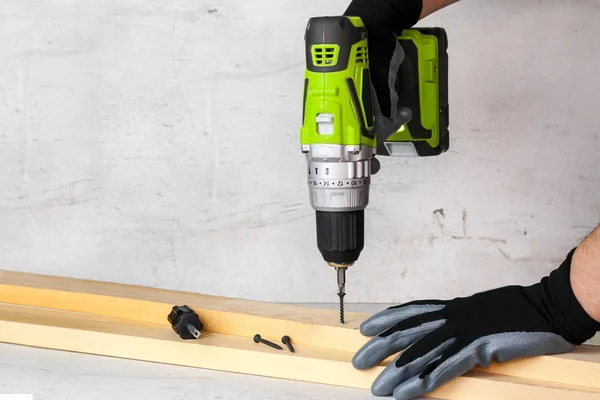Finding the Best Oval Head Screw: A Comprehensive Review
Screws are a crucial component in various DIY projects, woodworking, and home improvements. Among the diverse types of screws available, oval head screws are widely used for their elegant appearance and versatility. If you’re on the lookout for the best oval head screws, look no further! We’ve compiled a list of the top 5 oval head screw products available on Amazon, each carefully chosen for its quality, durability, and user satisfaction. Whether you’re a seasoned professional or a hobbyist, these screws will ensure your projects are built to last.
Top Picks for Best Oval Head Screw
Hard-to-Find Fastener Oval Phillips Machine Screws
These oval head machine screws from Hard-to-Find Fastener are made from premium stainless steel material, providing excellent resistance to rust and corrosion. With their Phillips drive style, they offer easy installation and removal. The screws come in a variety of lengths and diameters, making them suitable for a wide range of applications, both indoors and outdoors.
Pros:
- High-quality stainless steel construction ensures durability and longevity.
- Phillips drive style allows for straightforward installation and removal.
- Available in various sizes, offering versatility for different projects.
Cons:
- Some users might prefer a different screw head type for specific applications.
Small Parts Oval Head Sheet Metal Screws
The Small Parts oval head sheet metal screws are designed to provide maximum security, making them ideal for applications where tampering is a concern. These screws feature a sharp type AB point for precise insertion and come in a black finish for an attractive look. The screws’ durable steel construction ensures reliable performance in both indoor and outdoor environments.
Pros:
- Tamper-resistant design enhances security in sensitive installations.
- Sharp type AB point aids in easy and accurate insertion.
- Black finish adds an elegant touch to your projects.
Cons:
- Might not be suitable for general-purpose applications due to the tamper-resistant feature.
Stainless Town Oval Head Machine Screw Assortment Kit
The Stainless Town oval head machine screw assortment kit is a must-have for any DIY enthusiast or professional. This comprehensive set contains a wide range of oval head screws in different sizes, neatly organized in a storage box. The screws are made of high-grade stainless steel, ensuring excellent durability and resistance to corrosion.
Pros:
- Assortment kit provides a diverse selection of screws for various projects.
- Stainless steel construction guarantees long-lasting performance.
Cons:
- The assortment might contain sizes that you may not frequently use.
Hard-to-Find Fastener Oval Wood Screws
Another excellent product from Hard-to-Find Fastener, these oval head wood screws are perfect for woodworking projects. Made from sturdy and reliable brass material, these screws boast exceptional strength and are designed to withstand the test of time. Their sharp threading ensures easy insertion into wood surfaces, while the oval head delivers an attractive and flush finish.
Pros:
- Specifically designed for woodworking applications.
- Brass construction offers excellent durability and a classic look.
- Sharp threading allows for easy installation into wood.
Cons:
- Limited application to woodworking projects.
Prime-Line Oval Head Phillips Self-Tapping Screws
The Prime-Line oval head self-tapping screws are designed for quick and efficient installation without the need for pre-drilling holes. Made from high-quality stainless steel, these screws are perfect for both indoor and outdoor use, as they are highly resistant to corrosion. The Phillips drive style ensures straightforward installation, making them a popular choice for various DIY and repair projects.
Pros:
- Self-tapping feature eliminates the need for pre-drilling holes.
- Stainless steel construction ensures excellent durability and corrosion resistance.
- Versatile screws suitable for multiple applications.
Cons:
- The self-tapping feature might not be suitable for all materials and applications.
Conclusion
Having the right oval head screws can make a significant difference in the outcome and durability of your projects. Whether you need screws for woodworking, metalwork, or general DIY tasks, the products listed above offer outstanding performance and reliability. Before making a purchase, consider the specific needs of your project and choose the screws that best match your requirements. Happy screwing!
What Should You Look for in an Oval Head Screw?
When looking for an oval head screw, there are several key factors to consider to ensure you choose the right screw for your specific project or application. Here are the essential things to look for:
- Material: The material of the oval head screw is crucial, as it determines its strength, durability, and resistance to corrosion. Common materials used for oval head screws include stainless steel, brass, and zinc-plated steel. Stainless steel is an excellent choice for its high corrosion resistance, making it suitable for outdoor and marine applications, while brass offers an attractive appearance and is often used in decorative projects.
- Size and Length: Consider the size and length of the oval head screw to match the requirements of your project. The size is usually indicated by the screw’s gauge number (e.g., #8) and is critical for ensuring a proper fit with the corresponding nuts, washers, or pre-drilled holes.
- Head Type and Drive Style: Oval head screws typically come with a slotted or Phillips head for easy installation with a compatible screwdriver. Choose the drive style that you are most comfortable using and that suits your project’s needs.
- Thread Type: Pay attention to the thread type of the screw, as this determines how the screw will engage with the material. Common thread types include self-tapping, machine, and wood threads. Self-tapping screws are designed to create their own threads as they are driven into the material, making them ideal for quick and efficient installation.
- Application: Consider the specific application of the screw. Different projects and materials will require screws with varying properties. For example, if you’re working with wood, choose screws designed specifically for wood, while metal or sheet metal projects may require different types of screws.
- Quantity and Packaging: Determine how many screws you need for your project and check if they are available in the desired quantity or as an assortment kit.
- Brand and Quality: Look for reputable brands known for producing high-quality fasteners. This ensures that you are getting screws that meet industry standards and are less likely to break or fail during use.
- Load-Bearing Capacity: For applications involving heavy loads or structural support, ensure that the selected oval head screw can handle the weight and stress without compromising its integrity.
- Cost and Value: Compare the price of the screws with their quality and features. Sometimes paying a bit more for higher-quality screws can save you money in the long run by avoiding premature wear or failure.
Taking these factors into account will help you select the right oval head screw that meets the requirements of your project, ensuring a secure and reliable fastening solution.
Frequently Asked Questions
What best material for an oval head screw?
The best material for an oval head screw depends on the specific requirements of your project and the environment in which the screw will be used. Different materials offer varying levels of strength, durability, corrosion resistance, and aesthetic appeal. Here are some common materials used for oval head screws, along with their key characteristics:
- Stainless Steel: Stainless steel is a highly popular material for oval head screws due to its excellent corrosion resistance, even in harsh environments. It is ideal for outdoor applications, marine projects, or any setting where exposure to moisture or corrosive elements is a concern. Stainless steel screws maintain their integrity over time and are less likely to rust or deteriorate.
- Brass: Brass oval head screws are known for their attractive appearance and are often used in decorative or woodworking projects where aesthetics matter. Brass offers good corrosion resistance and is suitable for indoor applications or projects that do not face high levels of moisture or outdoor exposure.
- Zinc-Plated Steel: Oval head screws made from zinc-plated steel provide moderate corrosion resistance and are commonly used for general-purpose applications. The zinc coating helps protect the steel from rust, making these screws suitable for indoor use or limited outdoor use where exposure to moisture is minimal.
- Carbon Steel: Carbon steel oval head screws are cost-effective but have lower corrosion resistance compared to stainless steel or zinc-plated options. They are best suited for indoor projects or applications where the screws will not be exposed to moisture or harsh conditions.
- Aluminum: Aluminum oval head screws are lightweight and have excellent corrosion resistance, making them suitable for outdoor applications, especially in areas with high humidity or exposure to saltwater.
- Titanium: Titanium screws offer exceptional strength-to-weight ratio and excellent corrosion resistance, making them a premium choice for specialized applications, such as aerospace or marine projects. However, titanium screws can be more expensive than other materials.
In summary, if you’re looking for the best material for an oval head screw, stainless steel is often considered the top choice due to its overall performance and versatility. It provides excellent corrosion resistance, making it suitable for a wide range of applications, both indoors and outdoors. However, for specific projects with decorative considerations, brass might be a preferred option due to its attractive appearance. Always consider the specific needs of your project and the environment in which the screw will be used to select the most appropriate material for your oval head screws.
What’s better, a bolt or a screw?
The choice between a bolt and a screw depends on the specific application and the requirements of your project. Both bolts and screws have distinct characteristics and are designed for different purposes. Let’s explore the differences between the two:
Bolts:
- Bolts are typically used in applications where a secure and removable fastening is required. They consist of a threaded shaft with a head at one end and are installed through pre-drilled holes.
- Bolts often require the use of nuts and washers to secure the joint. The nut is threaded onto the bolt, and tightening it against the material creates a strong and reliable connection.
- Bolts are commonly used in structural applications, machinery, and situations where the joint may need to be disassembled or adjusted later.
Pros of Bolts:
- Provide a strong and durable connection, especially when used with nuts and washers.
- Suitable for applications where frequent disassembly and reassembly are needed.
- Available in various sizes and materials to meet different project requirements.
Cons of Bolts:
- Require pre-drilled holes for installation, which can add extra labor and time to the process.
- May not be as aesthetically pleasing in certain applications compared to screws.
Screws:
- Screws are fasteners that have a threaded body with a head at one end, and they are designed to be driven directly into the material without the need for nuts or washers.
- Screws create their threads as they are driven into the material, providing a strong and secure connection without the need for pre-drilled holes in some cases.
- Screws are commonly used in woodworking, metalwork, electronics, and various DIY projects.
Pros of Screws:
- Offer convenience in installation, as they don’t always require pre-drilled holes.
- Suitable for a wide range of applications and materials, including wood, metal, plastic, etc.
- Many types of screw heads are available, offering different drive styles for various purposes.
Cons of Screws:
- May not provide the same level of strength and load-bearing capacity as bolts, especially in larger or more heavy-duty applications.
- Can be more challenging to disassemble and reassemble repeatedly compared to bolts.
In summary, bolts and screws have different strengths and are suited for specific purposes. If you need a robust and easily adjustable fastening, bolts with nuts and washers are likely the better choice. On the other hand, if you want a simple and convenient fastening solution for various materials, screws are more suitable. Ultimately, consider the specific requirements of your project, the load-bearing capacity needed, and the ease of installation when choosing between bolts and screws.
What are the most common types of screws?
There are numerous types of screws available, each designed for specific applications and materials. Here are some of the most common types of screws:
- Wood Screws: Wood screws are designed with coarse, deep threads to provide a strong grip in wood materials. They come in various head types, such as flat, round, and oval, and are commonly used in woodworking projects.
- Machine Screws: Machine screws have fine threads and are used with nuts or tapped holes. They come with various head types, including flat, round, pan, and oval, and are commonly used in metalworking and mechanical assemblies.
- Self-Tapping Screws: Self-tapping screws have a sharp point that allows them to create their own threads as they are driven into the material. They are commonly used in applications where pre-drilling is not feasible, such as fastening metal to metal or metal to plastic.
- Sheet Metal Screws: Sheet metal screws are designed with sharp threads and a flat or pan head. They are used for fastening thin metal sheets and are commonly used in HVAC installations, ductwork, and other sheet metal applications.
- Drywall Screws: Drywall screws have a coarse thread and a bugle head, designed specifically for fastening drywall to wood or metal studs. They have a self-drilling point to ease installation.
- Lag Screws: Lag screws, also known as lag bolts, are heavy-duty screws with a hexagonal head. They are used for fastening heavy materials to wood, such as securing beams or large pieces of lumber.
- Concrete Screws: Concrete screws, also called masonry screws or tapcon screws, are designed for fastening materials to concrete, brick, or block. They have special threads and often come with a built-in drill bit tip for easy installation.
- Thumb Screws: Thumb screws have a large, easy-to-grip head, allowing them to be tightened and loosened by hand without the need for tools. They are commonly used in applications where frequent adjustments are required.
- Security Screws: Security screws have unique drive styles that require specialized tools for installation and removal. They are used in applications where tamper resistance is essential, such as securing license plates or access panels.
- Socket Head Cap Screws: Socket head cap screws have a cylindrical head with a hexagonal socket, requiring an Allen wrench or hex key for installation. They provide a flush and neat finish and are often used in machinery and equipment assembly.
These are just a few of the most common types of screws. There are many more variations and specialized screws designed for specific industries and applications. When choosing a screw for your project, consider the material you’re working with, the load-bearing requirements, and the specific characteristics of the screw that will best suit your needs.
editor's pick
news via inbox
Stay one step ahead with exclusive tips, guides, and offers delivered directly to your inbox.
Sign up for our newsletter and elevate your home improvement game today!







